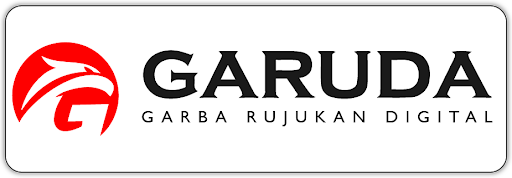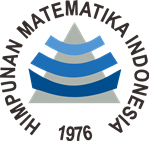Effect of Problem Based Learning Models with the Help of Monopoly Game on the Mathematical Critical Thinking Abilities of Class IX Students of MTs Negeri 3 Majalengka
DOI:
https://doi.org/10.24090/ijrme.v2i1.9870Keywords:
Mathematical Critical Thinking Ability, Monopoly Game, Problem based LearningAbstract
Abstract: This research was conducted based on the low critical mathematical thinking skills of class IX students at MTs Negeri 3 Majalengka. Researchers chose problem based learning models with the help of monopoly games to overcome students' mathematical abilities. The aim of this research was to find out how it was implemented and whether there was an influence of the problem based learning models with the help of the monopoly game on students' mathematical critical thinking abilities. The type of research used was quantitative research using experimental methods. The population of this study was all class IX, totaling 155 students, with a sample of 19 students in class IX A, and 21 students in class IX B. Data collection methods were carried out by observation and tests. Data analysis techniques used normality tests, homogeneity tests, and t tests. Based on the results of the t test againstpost-test obtained a value of 0.000 < 0.05, then H1 accepted. So it cauld be concluded that there was an influence between the modelsproblem based learning with the help of the monopoly game on mathematical critical thinking skills.References
Andriyanti, M. (2020). Application of Mathematics Monopoly Learning Media (MONIKA) for Social Arithmetic Material in Class VII Students of Adhyaksa Private Middle School for the 2018/2019 Academic Year.Scientifika Coloquia: Journal of Mathematics Education, 3(1), 16–22.
Devirita, F., Neviyarni, N., & Daharnis, D. (2021). Development of Problem Based Learning Textbooks in Elementary Schools.Jurnal Basicedu, 5(2), 469–478.
Elita, G. S., Habibi, M., Putra, A., & Ulandari, N. (2019). The Effect of Problem Based Learning with a Metacognition Approach on Mathematical Problem Solving Ability.Mosharafa: Journal of Mathematics Education, 8(3), 447–458.
Hamidah, N., & Ain, S. Q. (2022). Factors Causing Difficulty Learning Mathematics in Grade IV Elementary School Students.Scaffolding: Journal of Islamic Education and Multiculturalism, 4(1), 321–332. https://doi.org/10.37680/scaffolding.v4i1.1331
Ilham, D. (2019). Initiating Value Education in the National Education System.Didactics: Educational Journal, 8(3), 109–122. https://jurnaldidaktika.org/contents/article/view/73
Mashuri, S., Djidu, H., & Ningrum, R. K. (2019). Problem-based learning in mathematics learning: Teachers' efforts to increase student interest and learning achievement. Pythagoras: Journal of Mathematics Education, 14(2), 112–125.
Monika, A., & Learning, P. (n.d.).Development of arithmetic monopoly learning media (monika) in mathematics learning. 133–140.
Rismayanti, T. A., Anriani, N., & Sukirwan, S. (2022). Description of the Need for Smartphone-Assisted E-Modules to Improve the Mathematical Critical Thinking Abilities of Middle School Students.Wilangan: Journal of Mathematics Education Innovation and Research, 3(3), 203.
Simanjuntak, P., & Suharyati. (2018). The Influence of Generative Learning Models on Students' Mathematical Critical Thinking Abilities.Gamedu, 3(4), 52–61.
Downloads
Published
How to Cite
Issue
Section
License
Copyright (c) 2024 Ade Suherman

This work is licensed under a Creative Commons Attribution-ShareAlike 4.0 International License.
Authors who publish with this journal agree to the following terms:
Authors retain copyright and grant the journal right of first publication with the work simultaneously licensed under a Creative CommonsAttribution-ShareAlike License that allows others to share the work with an acknowledgment of the work's authorship and initial publication in this journal.
Authors are able to enter into separate, additional contractual arrangements for the non-exclusive distribution of the journal's published version of the work (e.g., post it to an institutional repository or publish it in a book), with an acknowledgment of its initial publication in this journal.
Authors are permitted and encouraged to post their work online (e.g., in institutional repositories or on their website) prior to and during the submission process, as it can lead to productive exchanges, as well as earlier and greater citation of published work (See The Effect of Open Access).













